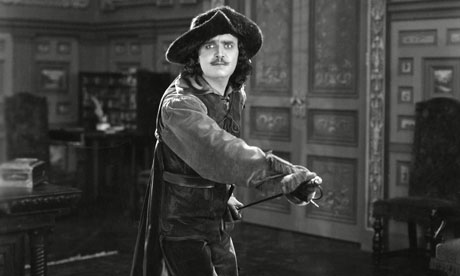
Should you ever find yourself in Los Angeles and in need of reading material, allow me to make a literary suggestion. Well, "literary" might be an exaggeration. But seeing as you would be reading it in a town in which movie studios insist on describing Adam Sandler as "a comedian" and an egg-white omelette on my hotel's breakfast menu is called "a tasty treat", one doesn't need to be too much of a stickler about nomenclature. Los Angeles is a town with history pools so shallow that the 1940s are as legendary and distant as the tale of King Arthur is in Britain.
The book that you should read – ideally in the garden of the Chateau Marmont, the Beverly Hills Hotel or any of the many establishments that play on references to a kitschy Hollywood mythological past – is the just-published Full Service, a memoir by Scotty Bowers, a self-professed "fixer" (arguably a euphemism) for Hollywood's A-list in the 40s and 50s.
Of course, you can enjoy this book outside of Los Angeles, too. In fact, Bowers' book would be instructive to anyone puzzled by this year's Oscars and, again, "instructive" might seem as much of a stretch as "literary", seeing as we're talking about a book that includes dialogue such as: "I'm going to fuck you now, baby. I'm going to make love to you like nothing you've ever experienced."
That, according to Bowers, was Errol Flynn's chat-up line to women who would – as per Flynn's taste – "at least look and behave like they were between 14 and 16 years old".
Full Service is a remarkable book. A remarkably ridiculous one. The best quote the publishers could find to slap on the cover is the not-entirely-adulatory "a startling memoir", from Gore Vidal, despite Vidal being, Bowers insists, "a close friend". Seeing as he also describes Vidal as "one of the nicest" men around, a description no one else has ever applied to him, one should take Bowers' claims with a heaped dose of sodium.
In Bowers' salty book, long-running rumours (Cary Grant and Randolph Scott were romantically involved) jostle up against stories that are, frankly, hilarious. The one that has received the most attention is Bowers' claim that one of the greatest love stories of the last century, that between Katharine Hepburn and Spencer Tracy, was a fabrication cooked up by the studios to conceal Hepburn's homosexuality and – hold on to your fedora – Tracy's bisexuality. Seeing as Tracy was, in fact, married and therefore already in possession of a beard if one were needed, this would make Hepburn, what, his moustache? Given America's morality in the 40s, it's hard to fathom why any film studio would claim that Hepburn was having an affair with a married man as opposed to pairing her off more conveniently with, say, the definitely not-married George Cukor.
Reviewers have been baffled as to what to make of Bowers's book, with some calling it a "spoof". That's not quite right. It's more like my favourite memoir by an actor, Errol Flynn's My Wicked, Wicked Ways, which just edges out David Niven's The Moon's a Balloon because Flynn is so gleefully shameless in his mixing of the factual with stories that, let's say, sound a little less plausible. And that's as it should be.
No industry is as besotted with a gilded vision of its past as the film industry, as proved by the Oscars this year. Aside from the ceremony itself being about the history of cinema, only one of the nine movies up for best film was set in the present day and, of the rest, three – The Artist, Hugo, My Week With Marilyn – were specifically about the movies from times of yore.
One can spin many theories about the success of The Artist, running from the enthusiastic (a fantastic film in a weak field) to the cynical (Harvey Weinstein is cinema's Simon Cowell, locking down that crucial top spot, annually). But one thing that particularly distinguished that movie from its competitors, and from any other movie about Hollywood that I can think of, is the clever way it simultaneously celebrates, puffs and trashes its own past.
Although The Artist does have, by necessity, a happy ending, it reveals the cruelty with which actors from the silent era were treated once talkies came in, a fact proven by the careers of John Gilbert and Douglas Fairbanks, but one ignored by Singin' in the Rain. Unlike A Star is Born, The Artist doesn't dismiss the appeal of Hollywood, but it doesn't idealise it, either. Similarly, Full Service reveals the pitiless effect of homophobia back in those days, albeit couched in some decidedly dubious-sounding claims.
Hollywood loves to idealise its past, but it's a lot more fun when it trashes it a little, too, mocking its own mythology while revelling in it. This is why The Artist is such a perfect film about the film industry and the ideal Oscar winner, and why Full Service is the book Hollywood deserves, Hollywood in all its starstruck, self-aggrandising, trashy, hilarious, not entirely credible, eye-poppingly ridiculous glory.

